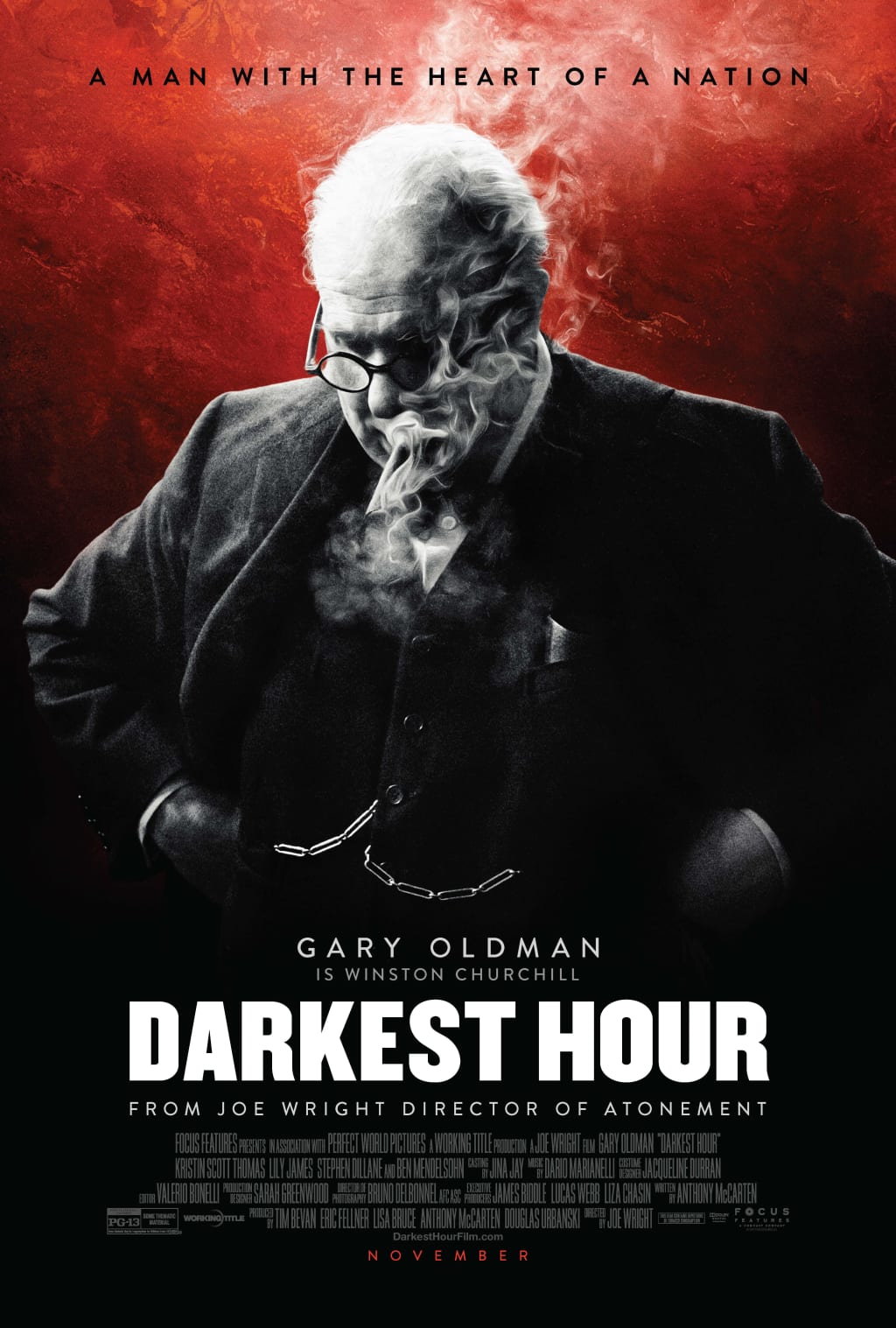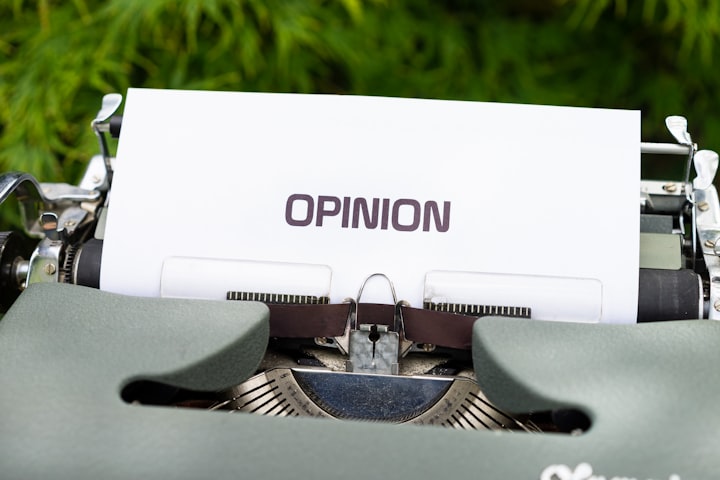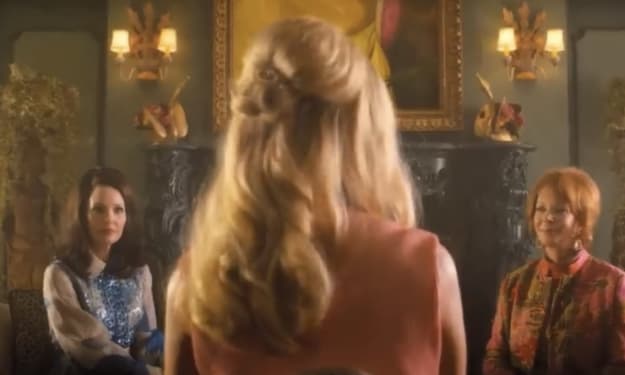Movie Review: Gary Oldman Stunning in Darkest Hour
Historical revisionism aside, Oldman is a powerhouse in Churchill bio.

With the release of the movie Darkest Hour starring Gary Oldman, there has been a new reckoning with the legacy of Sir Winston Churchill, one that has brought to light some of Churchill’s more horrific qualities. On his podcast Revisionist History, journalist Malcolm Gladwell reflected on Churchill with specific criticisms about the legendary Prime Minister’s policies toward India, policies that many feel were driven by Churchill’s Hitler-like disdain for the Indian people. Then there was the policy of strategic bombing in Germany which may have actually extended the war by two more years even as Churchill is recalled as that war’s great, heroic leader.
There is also talk of Churchill’s treatment of black people and women, none of it flattering. These revelations have cast a pall over the legacy of one of largest and most vaunted figures of the 20th Century. Thus, the release of a movie which chooses to focus on making the Prime Minister's legacy more suitably entertaining, it’s natural to cast a side eye at such a movie. Or one may be driven to madness trying to balance the notion that Darkest Hour is a very good film but one which aims its greatness at a figure who may not be so great, or at the very least, not worthy of such historic hagiography.
May 1940
Darkest Hour stars the inimitable Gary Oldman in the role of Prime Minister Winston Churchill. The story picks up in May of 1940 in first days in which Mr. Churchill inherited the office of Prime Minister from the deposed Neville Chamberlain. Churchill was no one’s first choice, a suspicion confirmed by King Edward (Ben Mendelsohn) early in the film when he asks why Lord Halifax (Stephen Dillane), his choice for Prime Minister, had passed on the job.
Churchill is the only candidate that both parties in Parliament will accept as a war time Prime Minister, despite what the King describes as a litany of military failures dating back to World War 1. Even with Churchill being offered and accepting the position, it’s barely a day before backbiting and jockeying for position to replace him begins, all the while Europe is falling quickly as German Panzer tanks decimate Holland and Belgium and begin an assault on France that will eventually lead to the beaches of Dunkirk and England’s "finest hour."
Two Tries
It took me two viewings of Darkest Hour but I finally began to see what Gary Oldman and director Joe Wright have accomplished. Oldman is voluminous and bellowing while Wright cuts the lights so that we only make out the sweat on Churchill’s pallid brow and the suffocating cigar smoke that fills every room he’s in. As the war cabinet deliberates over the notion of negotiating with Hitler via his lapdog Mussolini, we watch in fascination as Oldman’s animated eyes and forceful tone cut a heroic figure of Churchill that we'd love to believe is real.
Joe Wright’s masterful direction of Darkest Hour cannot be overstated. Wright has perfect control over the pace and tone of his film while cinematographer Bruno Delbonnel, a three time Academy Award winner, brilliantly captures both the dreary streets of London and the shadowy corridors of power at Downing Street and in the cavernous war headquarters. The play of light and shadow in these dusty, dank yet well appointed rooms creates the perfect setting for the remarkable intrigue of watching Oldman’s war horse Prime Minister battle wits with the spineless Chamberlain (Ronald Pickup) and the duplicitous Halifax.
Witty and Full of Life
Whether what takes place in these scenes is of historic fact is not for me to say but the ways in which Wright and his team have brought them to life is breathtaking. Watch the first of the war cabinet scenes when Oldman’s firebrand throws everyone out of the room over the thought that there may be peace negotiations with Hitler and his fascist regime. We know that Chamberlain and Halifax have already been plotting against Winston and the tension of the scene is lively, witty and rife with intrigue.
Much of Darkest Hour is witty and rife with intrigue. Joe Wright and screenwriter Anthony McCarten make sure to capture the verbose Prime Minister in his full wordy glory, presiding over Parliament with a wagging finger and words so powerful that one of his opponents accuses him of mobilizing the English language to war. Gary Oldman is superb in these scenes as well as in quieter scenes when Churchill was surprisingly vulnerable, stooping to beg President Roosevelt for military support while fearing that he may be England’s last Prime Minister. Oldman in impeccable makeup by Kazuhiro Tsuji, David Malinowski, and Lucy Sibbick, brings marvelous life to Churchill, cutting the figure of the Prime Minister in tremendous fashion.
Historical Revisionism
Taken as just a movie, Darkest Hour is one of the best of 2017. Darkest Hour is full of raw power and historic scale and is centered upon a performance for the ages from Mr. Oldman. Taken as history however, the film is on shaky ground. As I mentioned, while Churchill’s place in history is assured as a leader who did remarkable things to keep England out of the clutches of Hitler, he was also a virulent racist, especially toward those of Indian descent. And, while the film is careful to acknowledge Churchill’s military flaws of the past, we know now that he blundered through World War 2 with policies such as strategic bombing that may have gotten countless people killed and extended the war for years.
Now, in fairness, that is not the purview of Darkest Hour. The film has no aim to cover the entirety of Churchill’s life or his policies. The film is very specifically about Churchill’s first month in power and in that specific instance, the movie is right to laud Churchill. With that said, I have a major quibble with one scene in particular, one scene that has little basis in historic fact and one that only serves to give us a look at the cuddly and lovable side of Churchill, a side that may be mostly fiction.
The Great Scene, a Great Lie
The scene is set late in the picture, on the day that Churchill is to speak to Parliament and declare whether England will fight or seek to appease and negotiate. It’s raining and when Churchill’s driver comes to a sudden stop, Churchill exits the vehicle and heads for the underground train. Aboard the train to Westminster, the Prime Minister mingles with some everyday Britons and hears that they are ready for a fight.
Let me state clearly, I think this scene in the context of being just a scene in a movie is spectacular. It’s an idealized, perfect movie moment. Our hero, bedraggled and unsure, seeks guidance and takes to the realm of the common folk and through their wisdom finds the courage to go with his gut. It’s a terrific scene and exceptionally rendered with colorful characters and brilliant scene setting from Delbonnel and the production design team.
A Cuddly and Welcoming False Portrait
That said, the notion that a man of Churchill’s proclivities, he mentions having never ridden aboard a bus or being aware of the price of bread early in the film, a likely shading toward this scene later in the narrative, would mingle amiably on the tube is a bit of a stretch. That the Prime Minister would then encounter only those who agree with him is another stretch. Then we have a character in this scene that happens to be black in and therein lays even more revisionism as some have noted Churchill as a virulent racist.
This cuddly, welcoming portrait of Churchill is downright ghastly in the reflection of history. It ranks as one of the uglier moments of pop culture revisionism and propaganda ever committed to film. It’s baffling to me to attempt to reconcile that this scene, purely on a cinematic level is fantastic, and yet as history it is pure, sinister fantasy, a dream of the kind of man Britons wish that Churchill had been. For the record, there were reported instances of Churchill having popped up in the regular population during World War 2 but most of those stories have never been confirmed or have been conflated for the type of hagiography that Darkest Hour is attempting.
Pop Culture Propaganda
I’m a film critic and it’s my job to simply judge films on their merits and on that front my job should be easy. Darkest Hour is unquestionably a remarkable film populated by incredible performances, especially Mr. Oldman’s Churchill who is the leader and human being we all wish the real Churchill had been. With that said, I also feel a duty to society and history not to let Darkest Hour off the hook for trying to pretend Churchill was only a hero; he wasn’t. Few of our leaders from before and during Churchill’s time were genuinely heroes; many had the same awful failings that Churchill had.
Brandishing pop culture to create fake, loving portraits of historic figures is akin to outright propaganda. And before you rush to state that Darkest Hour is "just a movie" I must ask; if this were a character you didn’t already love and believe in would you be okay with a portrayal of that figure that only focused on the positive aspects of his legacy? Perhaps if Darkest Hour were a movie about Mussolini that focused on the great things he did for Italy and left out what he did to aid Hitler and further the cause of fascism, would you be okay with that?
We Cannot Ignore the Truth
What Mr. Churchill did in India, based off of his ludicrous and unforgivable bias was akin to genocide. Churchill’s toxic hatred of the Indian people caused a famine that killed millions. As the English stockpiled grain for post-war Europe, Churchill and his cronies lied to Indian leaders, even members of his own government, and stated that there was nothing to spare to save India from a deathly famine. Churchill even stepped in to prevent his American allies from supplying India in its time of need.
Pretending that Churchill was a dotty, doughy, purely inspirational figure is just plain wrong and as much as I love Darkest Hour as a movie I cannot stand it as a piece of propaganda. It’s a film of remarkable quality, direction, and acting of the highest order, but the film is deeply misguided in the way it creates a version of Churchill wherein his defining flaws are cast aside in favor of burnishing a tarnished legacy.
My Recommendation and Reckoning
See Darkest Hour because it is a tremendous work of art but do not forget that at its core is a fundamentally flawed figure and not merely the lovely, powerful, pokey old man that the film presents as an unfailing hero. Darkest Hour will be in theaters in time for Christmas.
About the Creator
Sean Patrick
Hello, my name is Sean Patrick He/Him, and I am a film critic and podcast host for the I Hate Critics Movie Review Podcast I am a voting member of the Critics Choice Association, the group behind the annual Critics Choice Awards.






Comments
There are no comments for this story
Be the first to respond and start the conversation.